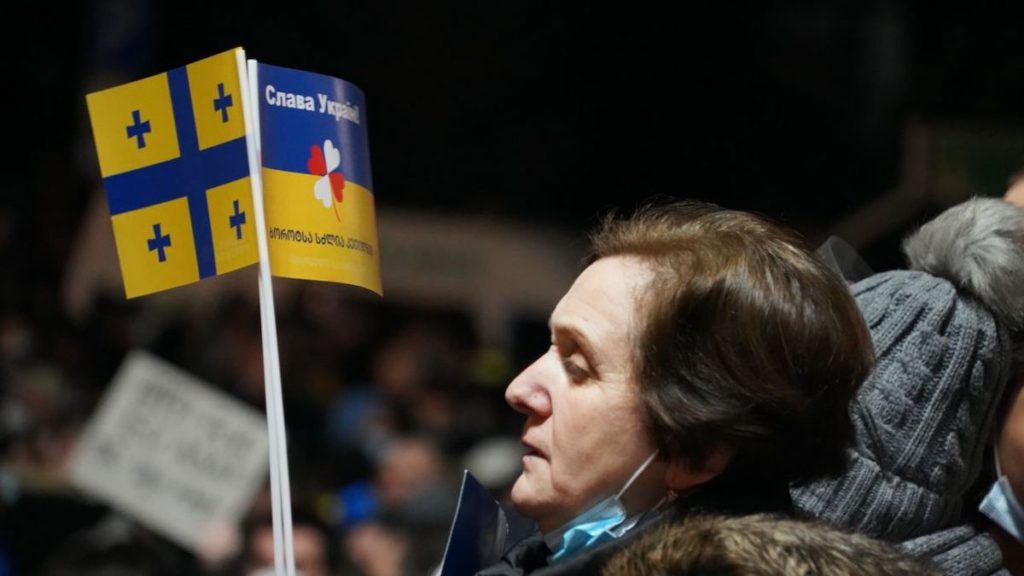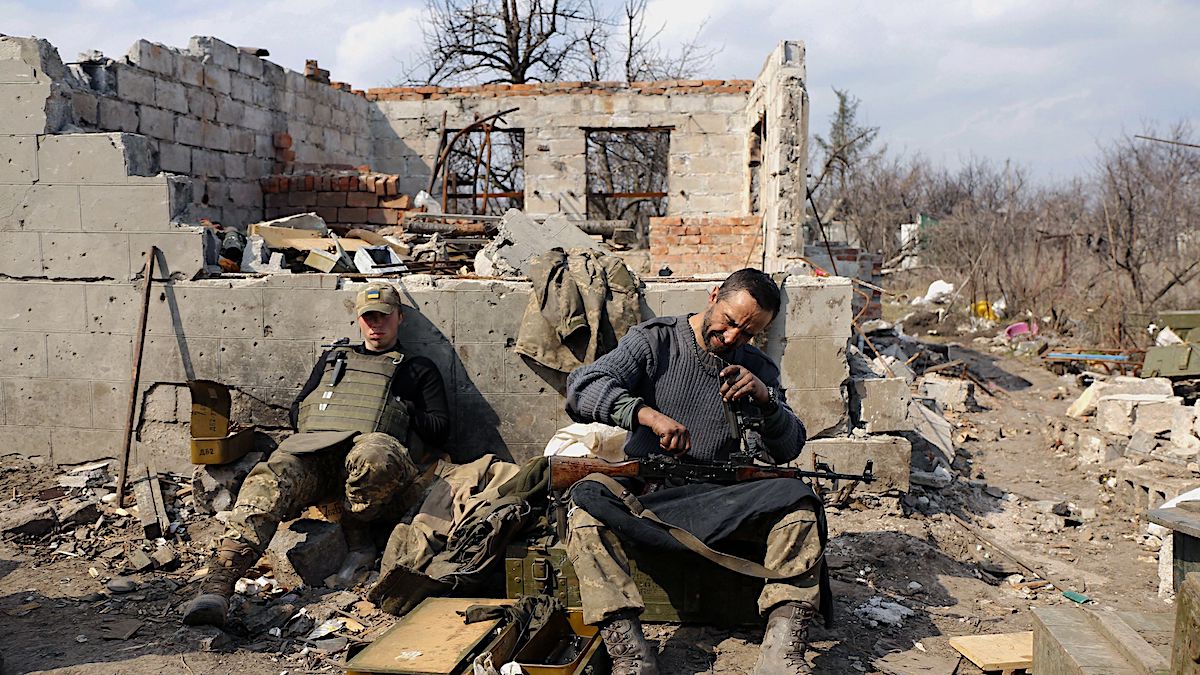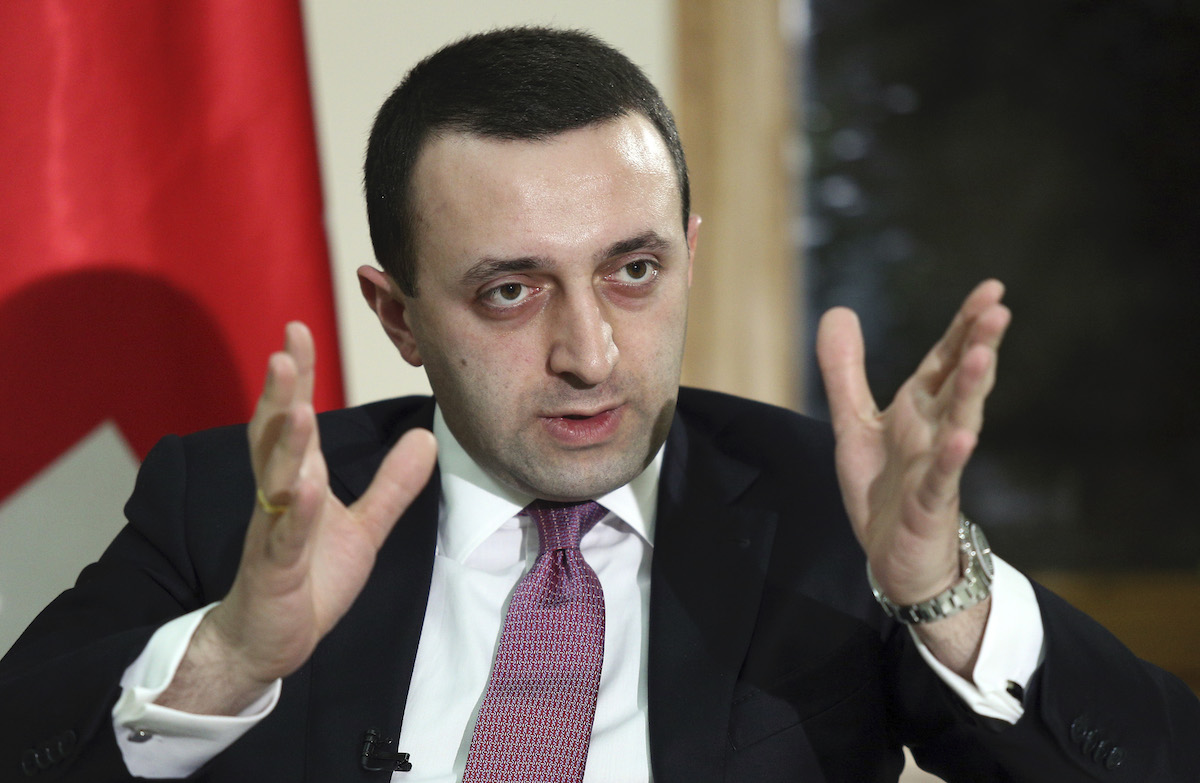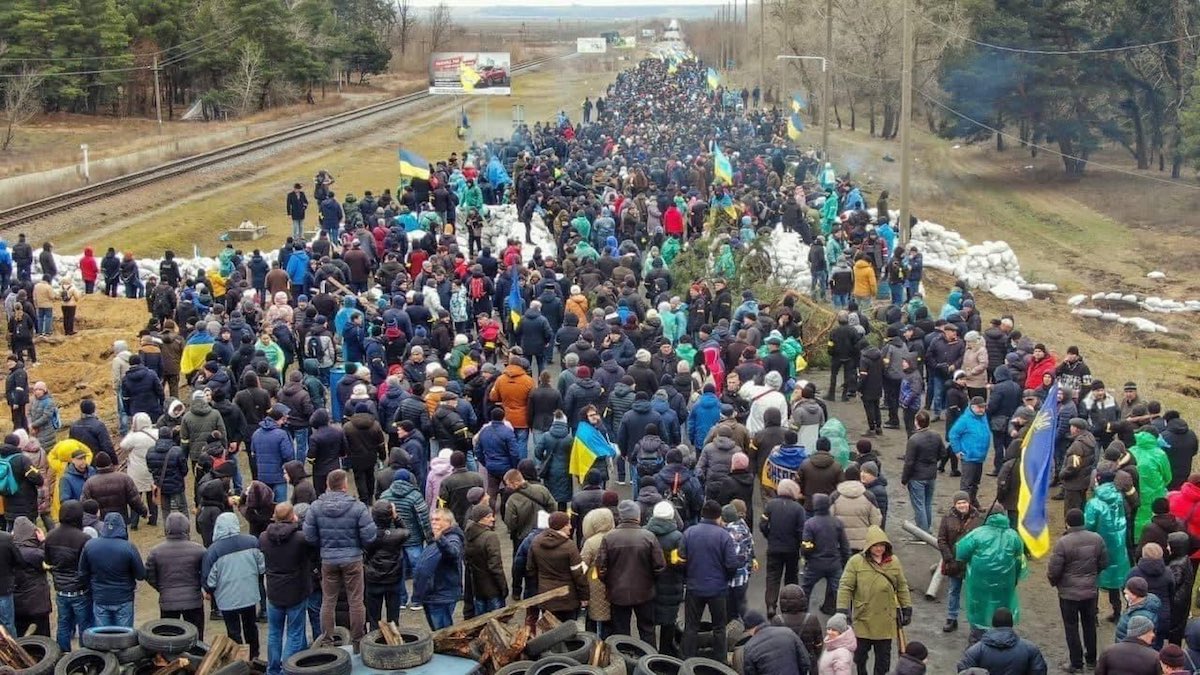Op-ed: Who is speculating on the fear of war in Georgia and why?
Fear of war in Georgia
“What are they doing with Ukraine and what will they do with us?”
“Georgia would not have survived three days of such a war”,
“If we don’t act smart, we will be bombed too” –
These phrases related to the war in Ukraine are the main arguments of those who support the moderate policy of the Georgian Dream government towards Ukraine and believe that the government did the right thing when it did not join Western sanctions against Russia.
These phrases are repeated by people who do not support the authorities, but fear that Georgia will irritate Russia with its radical position and that a war will also begin here.
JAMnews asked several security experts about what these fears are based on, who feeds them and who uses them. We also wondered if the tone and content of the Georgian government’s statements is enough to stop the threat from Russia.

“Russia is strong, we are weak”
All experts interviewed by JAMnews say that the fear of war and physical destruction is quite natural, especially in light of the experience of the 2008 war in Georgia and current events in Ukraine.
This fear is now present in many countries of the world, however, according to experts, the most important thing is who manages this fear and how.
“It is natural that there is fear, but the responsibility of the government is not to cultivate fear, but, on the contrary, to minimize it”, says Paata Gaprindashvili, director of the Georgian Reform Association (GRASS).
Giorgi Bilanishvili, a researcher at the Rondeli Foundation, believes that instead of reducing this natural fear, the government is feeding it with frequent messages:
“They keep telling people that if it wasn’t for our ‘non-irritation’ policy, Russia would have attacked us and there would have been a big disaster”.
According to him, in Georgia, this fear is reinforced by the pro-Russian actors operating here – pro-Russian media or people active on social media:
“They believe that Russia is strong, it can achieve all the goals it has set for itself. Therefore, Georgia should not do anything against Russia, or anything that Russia does not like, otherwise Russia will punish us for this”.
Security expert Teona Akubardia believes that the behavior of the authorities, who explain fear in terms of national interests, is unacceptable and even criminal:
“No one wants war, including Ukraine. But the national interest of the country should not be to avoid war, but to protect the sovereignty of the country, which we proclaimed in the constitution and in the concept of national security.
Why do authorities need to feed this fear?
According to Giorgi Bilanishvili, in this way the government is trying to justify its policy of “non-irritation” (the so-called constructive position, as the government calls it) towards Russia:
“They have to prove that this policy is the only right one”.
Paata Gaprindashvili believes that this is a lever to retain power, but it is very wrong and dangerous:
The ruling Georgian Dream party managed to stay in power largely because it creates the image of an enemy, I mean not only of the (opposition party) National Movement, but the principle “those who are not with us are against us” – thus it manages to stay in power.
It is one thing to hold power in this way, but, on the other hand, it contributes to the division of society and the growth of fear, which is detrimental to national unity. If we do not understand this, we will not be able to break out of the vicious circle. If you hold on to power through fear, it’s not a mistake, it’s a crime”.
Will the policy of non-intervention reduce the threat of Russian aggression?
Teona Akubardia says that the threat of a repetition of Russian military aggression in Georgia has not been removed since the 1990s and exists permanently.
“The fact that Russia did not realize its interests in the region is evidenced not only by the war against Ukraine, but also by the process of borderization and creeping annexation in Georgia, not to mention the information war and disinformation and propaganda”.
Giorgi Bilanishvili does not see the results of the policy of “non-irritation” chosen by the government:
“The policy of borderization, annexation in Abkhazia and the Tskhinvali region continues. Moscow is preparing solid ground for their accession to the Russian Federation in one way or another. At the same time, this has a negative impact on our national interests – integration into NATO and the EU”.
What is Georgia’s pragmatic policy today?
Paata Gaprindashvili believes that the only thing that the national interests of Georgia dictate to the government of the country today is complete solidarity with Ukraine.
“It is a pragmatic policy not to say or do anything that would cause the government to distance itself from its Western allies. Because without them, our country has no alternative. Caution does not mean crossing red lines and drifting towards Russia in the eyes of the West”, said Paata Gaprindashvili.
According to Giorgi Bilanishvili, Georgia’s position was clear in all international forums, where Georgia openly expressed support for the sovereignty, territorial integrity of Ukraine and condemned Russian aggression, although the statements were, to put it mildly, vague:
“At least this applies to the first statement of the prime minister, when he spoke about aggression – he did not mention Russia, and indirectly accused Ukraine of being unable to avoid war, including drawing parallels with 2008, and stated that Georgia was not going to impose sanctions”.
According to Teona Akubardia, the only country that benefits from frightened Georgia is Russia. The expert believes that it does not matter for Russia which government there will be in Georgia, because this country has its own specific goals that the behavior of the Georgian authorities cannot change:
“The goal of Russia is to take concrete actions against Georgia under any government. We must resist this with the unity of society, as well as with concrete initiatives”.
Paata Gaprindashvili believes that instead of feeding fear, the government’s strategy should be the unity of society, because “the unity of society leads to the minimization of fears”:
“The goals of defense can only be achieved through a total defense approach – the pooling of military and civilian resources. The success of total defense depends on the moral, physical and material readiness of society to defend the security of its own country. Now the government must see its role in raising this spirit. We must convince citizens that each of them plays a big role in protecting the country. This is the responsibility of the government, and since this is not happening, this fear has arisen”, says Gaprindashvili.
The expert cites Ukraine as an example – according to him, if the Ukrainian authorities inspired fear in society, Putin would have already achieved his goal:
“Putin hoped that he would invade Ukraine and be greeted with general enthusiasm by the people. But what did he see this time? On the one hand, the strength of the authorities headed by President Zelensky, on the other hand, the moral strength of society and the people, the overwhelming majority. He didn’t expect this. It seems that our government has forgotten that if you want peace, you must prepare for war”, Gaprindashvili said.





















